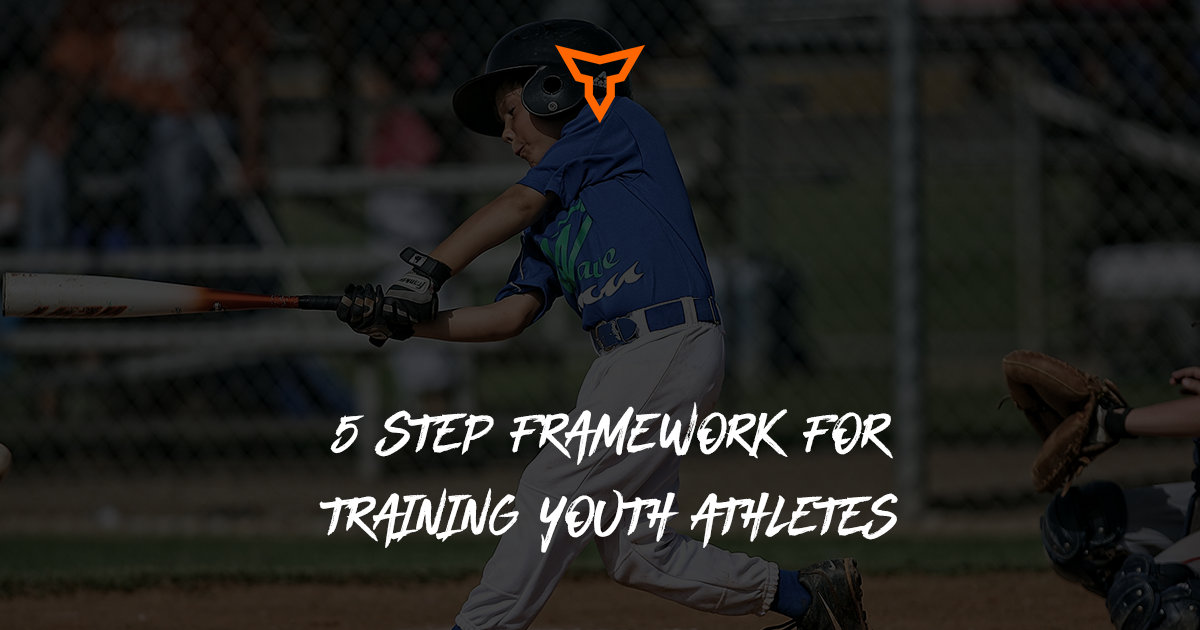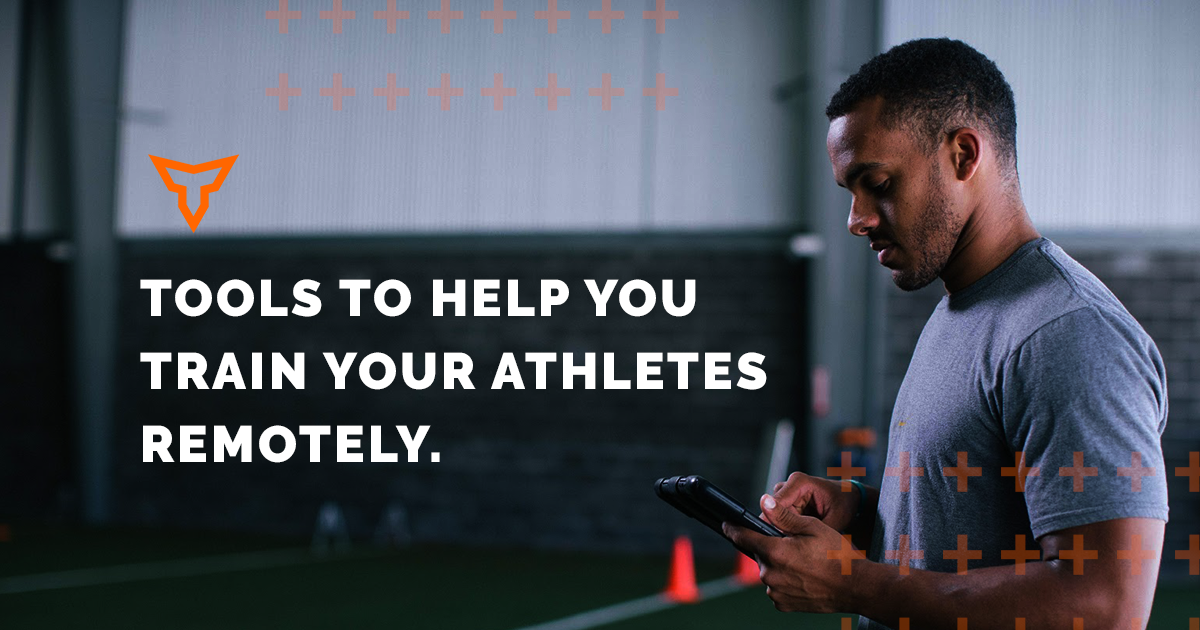Affordable, Fundamental Nutrition for The High School Athlete
My mom used to always say when I was a teen, “My son is eating me out of house and home!” A teenage athlete diet is not cheap, so now that I'm an adult professional performance coach, I am here to share how our young athletes can eat optimally on a household budget!
What can I say? I was a four sport athlete, growing boy, and I needed to eat. I’m sure many of you with high school athletes are experiencing similar situations. They eat so much you feel your only option to afford this food is to take out a second mortgage just to be able to feed them. That’s why a lot of parents resort to buying foods that are highly processed as they typically cost less.
But I’m here to tell you it’s possible to find high-quality nutrition for young athletes and still have money left over for yourself.
One of the most cost-effective ways to feed your athlete is to get a membership to a wholesale club like Costco, Sam's Club, or BJ's. You can buy large amounts of whole foods which will save you money. There is an upfront cost for joining but it’s usually $50 or less a year. You can buy everything in bulk: cooking oils, spices, meat, and carbs.
One of the most important things is to teach our athletes about how to eat well. One way to do this to NOT put too much focus on losing weight or gaining weight. Since food choices will be something they deal with for the entirety of their lives, athletes should form a healthy relationship with food early on. As their parents and coaches, our job is to educate them on healthy food habits. For instance, athletes should not have to count calories but they should understand what food is, what food does and how the wrong foods can be detrimental to performance - athletically and in their lifestyle.
Essentially, when it comes to high school athletics and nutrition for athletes, athletes need to understand that food is fuel for performance and also a catalyst for recovery. A good analogy for your athletes to understand is that their bodies are like a Lamborghini and require premium fuel. Failing to load up on premium fuel will result in suboptimal performance and poor nutrition for teenage athletes. That's why an effective teenage athlete meal plan so important.
Protein
Proteins are a food that helps athletes recover and are essential for tissue rebuilding and repair. When it comes to cost, protein will make up the majority of your grocery budget. Most of your athletes protein should come from animal-based sources as its quality is superior to that of plant-based. Eggs are one of the highest quality proteins you can feed your athlete and they are usually the least expensive source. You can easily make eggs so many ways that you’ll never grow tired of eating them which also means that cooking eggs can be a good time to teach someone how to cook.
Chicken is another inexpensive sources of protein but also one of the more quality sources as far as completeness when it comes to protein. Chicken thighs are less expensive and taste better than chicken breasts. They also are more nutrient dense and have more calories per serving because of their higher fat content. Many suggest buying organic but it can be hard to find quality organic chicken that justifies the cost. I highly recommend you befriend a farmer to get your eggs and chicken from if possible.
Beef is the next one on the list. Do your best to buy grass-fed beef even if the price is a little more; investing in higher quality beef is worthwhile for taste and nutrients. It is a little more up front but purchasing a cow. You can do this by purchasing a full cow, half a cow, or quarter of a cow. A half of a cow typically has 110lbs. of beef. This will usually run $775 a quarter. That’s roughly $7 a pound for high quality grass fed beef. This includes ground meat, steak, roast and many other cuts. Remember steaks cost more more in the store. So while this cost is more upfront, long term it saves you money.
Carbohydrates
Very few can argue that young athletes need carbs as a primary source of nutrients. Carbs provide the energy needed to perform at a high level because our body treats them as the "first choice" in fuel consumption for optimal performance. Most of our athletes are non-stop training anywhere from 10-20 hours a week and the best source of energy to fuel these training sessions is carbohydrates. If you neglect to give your athletes the appropriate amount of healthy carbs you risk hampering their performance. This also is the cheapest of all the macronutrients (carbs, proteins, fats). But it’s also the place for the majority of the macronutrients to come from.
The most cost-efficient carb sources will come from potatoes (all kinds), rice, oats, vegetables and fruits. Farmers' markets are the place to go for the best fruits and veggies. Potatoes, rice, and oats can be bought in large quantities from your local warehouse. Stay away from processed foods like chips, cookies and highly-processed carbs like fake cheeses and fruit juices, ice cream, soda and candy. They serve no purpose in an athlete's diet; don't even have them in the house.
Fats
To be clear, humans need fats. They serve many important functions and some fats are essential, meaning, they are required for survival. Fats serve as the basis of many hormones and cell-to-cell communication. If a young athlete does not get enough fat over a long enough of a period, it can have a devastating effect on their hormone production and lead to a lifetime's worth of issues. The good news is that if your athletes are trying to gain weight, fats are a great way to add calories to their diet from sources such as nuts, nut butters, olive and coconut oils, avocados, fish and natural cheeses.
Your athlete needs healthy fats. They serve many important functions. They help with recovery, improve brain function, help with important hormones, and many other cell processes. Some fats are essential, they are required for survival, and we cannot get from anything else besides our diet. Meaning if you don’t eat them - you won’t survive. They serve as the basis of many hormones and cell to cell communication. If you don’t get enough fat over a long enough of a period it can have a devastating affect on their hormones and lead to a life time of issues. Great thing is if your athletes are trying to gain weight fats are a great way to add calories to their diet from sources such as nut butters and oils
When?
BEFORE: 1-2 hours pre-activity
- eat 30-60 g’s of carbohydrates.
- 20—30g of protein
- For carbs choose ones that are low in fiber and fat to prevent issues with nausea, stress or bloating before activity
- Due to fats long digestion time, It’s recommended to limit excess fat before and during activity to avoid nausea, vomiting, diarrhea feeling of being bloated and sluggish.
INTRA/DURING:
- If they are exercising 45-60 minutes or less, then carbohydrates aren’t necessary
- If you are exercising greater than 60 minutes include some type of sports drink like Gatorade, Powerade, or honey
- Getting carbs during long bouts of activity is essential to maintain your energy levels and keep performance at a prominent level
POST: 60-90 mins after
- 30-90gs of carbs
- 20-40gs of protein
- 7-15g of fat
- After a workout, your muscles energy stores are low or depleted. To recover for your next bout of activity refueling with carbohydrates are essential.
- Remember to match protein with some type of carbohydrate as carbs help to replenish their energy stores and protein helps to build and repair the muscle they broke down during activity
- Including some healthy fats after your activity is beneficial to provide sufficient calories for recovery and promote a healthy inflammatory process.
How much?
I don’t recommend having your athletes counting macros. It creates an unhealthy relationship with food. Keep things simple. Eat 4-6 meals a day. When it comes to nutrition for athletes, we want to teach them about the importance of eating. What each macro does and why they are important. Every meal should have lean protein, fruits or vegetables, quality carbohydrates, and healthy fat. If they have a high activity day more quality carbs if they have a low activity day a little less quality carbs but more fruits and vegetables. If your athlete needs more food start by adding more carbs and/or fat to each meal. If they need less food take out some carbs from a meal or two. I’ve found that if your athlete is eating every few hours and has healthy eating habits they are likely meeting their needs for all macros. As far as timing goes I wouldn’t get to caught up in it. Ensuring they are fueled for practice/training/games is important though. (see bonus section).
Closing
Our main goal with young athletes is to create a healthy relationship with food and teach them the importance of the various macros that they consume,. Food is integral to everything we do. It’s not just on and off the field. Food has a huge social element to it also. Sunday dinners, sleep overs, cook outs, and various other activities food is always a staple. Food should be fun and enjoyed. Many of the things we do growing up impacts our relationship with food as we grow older. Your young athlete is highly impressionable. What they see us do at home and who they are surrounded with will influence their decisions for the rest of their life.
If you want them to have confidence in what they do and approach food with a healthy relationship make sure you as the adult are doing those things. They aren’t little adults and we can’t expect them to act or understand things like us. They are under a lot of pressure between social media, their peers, and society.
Don’t make any food off limits. The more you make food off limits they more they are going to want it. They are kids, so let them be kids. Some ice cream won’t hurt them. If you ever have a question about anything related to high school athlete nutrition, always make sure to communicate with a sports dietitian.
For a comprehensive list of cost-efficient foods to provide a full range of nutrients for a young athlete, download this Young Athlete Shopping List.
Subscribe to our blog
Subscribe to receive the latest blog posts to your inbox every week.
Related posts

Simple Supplementation Guide For the High School Athlete (Part 1)

5 Step Framework for Training Youth Athletes


